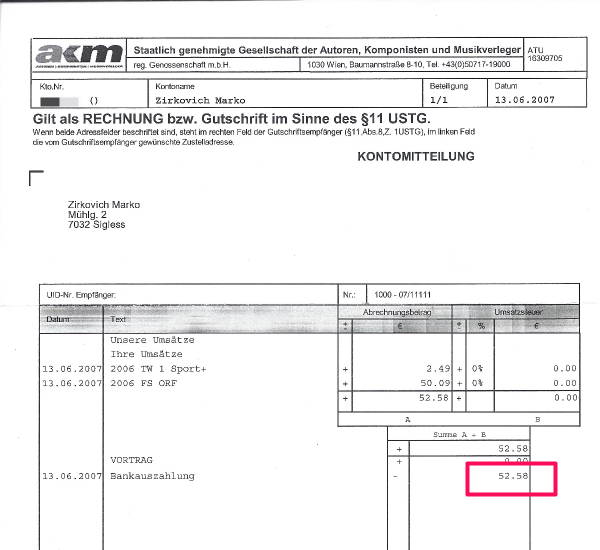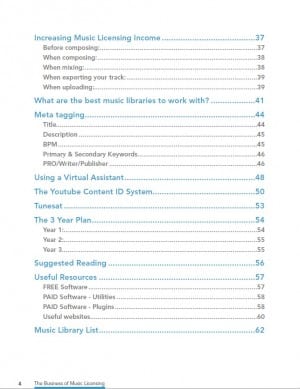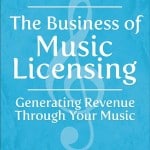
photo credit: barninga
December 2005 – the Winter Olympics are approaching and the Austrian broadcasting corporation ORF wants to have some fresh tracks produced.
The 3 of us (my 2 co-producers and me) go to work. I do my teaching and then spend the remaining hours of my days producing tracks to meet the ridiculous deadline so that our material would end up in the roster for the broadcasting.
We get great feedback on our tracks, but when we watch the Olympics we don’t hear any of them.
Apparently something didn’t work as expected with the new upload/online access system the broadcasting corporation was testing and the reporting crews in the field ended up using tracks they already had on their local drives or on CDs.
What’s a setback like this when you are young, having fun, learning a lot and now your foot’s in the TV door?
Nothing, so we continue.
We produce more tracks, actually, a ton of tracks. The feedback gets more enthusiastic with each release as well.
We catch our tracks on TV. You turn on the telly and there’s a slow motion summary of the Kitzbühel ski race (arguably the biggest skiing event after an Olympic or World Championship race) and in the background there’s your music providing the sound track for the winner jumping down the Mausefalle.
Awesome.
So, we’ll be rolling in the dough come royalty payment time, right?
My 1st Royalty Cheque

Uhm, no.
The highly anticipated 1st royalty cheque finally arrives in the middle of June 2007. A whopping 52,58€ for the entire previous year.
Of course we gulp and we are disappointed, but we are young, having fun, learning a lot with our feet in the TV door…. I think this sounds familiar, sorry for the déjà-vu.
Over time I did earn significantly more money and even though I eventually stopped producing for the ORF, I still receive royalty cheques. Years later. That’s the power of licensing your tracks.
But… Ask Yourself
- Is it really necessary to make all the costly mistakes yourself?
- Isn’t there a quicker way to have your tracks generating money for you?
- Without months or even years of trial and error?
It seems to be part of a musical rite of passage to get scammed and exploited. How else do you account for the public image of the starving musician?
When I told my mother I’d become a guitarist many moons ago, she envisioned me ending up busking in some underground station in Vienna. As a result of this “vision” she always put some coins in whenever she was in Vienna and walked by a street musician. After all, it could have been me. Bless my mum.
Enough chit-chat.

Now it’s time to introduce you to Emmett Cooke, a full-time composer for film, TV and video games from Ireland.
I’ve seen Emmett enter music licensing platforms and become a top seller. I’ve heard him develop as a musician, composer, producer. I’ve observed him launch a couple of sites, be active on social media, increase his online presence – to the point where you ask yourself: does this guy ever sleep?
And fortunately for us, Emmett wrote an e-book to share his music licensing knowledge and expertise.
He is qualified to write about the topic, because it comes from real-life experience – no ivory tower music business theory about how things could or should be on paper, but rather practical stuff that any modern composer/producer is faced with daily.
The Business of Music Licensing
Onwards.
The Business of Music Licensing is a 73 page e-book. No fluff-pictures that take up space in order to mask and puff-up thin content, but no intimidating blocks of text either. Instead, it’s a well-formatted e-book that’s aesthetically pleasing and easy on the eyes.
Have a look at the table of contents to see what’s covered in the e-book:
Emmett writes in a personal, friendly and engaging style. Unlike lots of other music business books he avoids legal jargon. First, he defines all the basic licensing terms in order to get you up to speed quickly.
Then, over the next few pages Emmett answers most of the questions you’ll come across when entering the arena of music licensing as a business. What kind of tracks to write, where to publish, how to approach a publisher…
He even includes a great template letter for music library submission. I’d recommend that you probably should not use it verbatim, but rather modify it a bit to suit your own style and personality. Nevertheless, it’s great to have a template as a starting place.
Sprinkled throughout the e-book are lots of valuable resources:
- links providing additional supporting information to Emmett’s explanations
- a link to a calculator that can be used by freelancers to figure out what their hourly rate should be
- the list of libraries on 42-43 alone will save you hours of your precious time
- even more music libraries on pages 62-72
- a bonus example spreadsheet showing you how to keep track of your music library submissions
3-Year Business Plan
I definitely need to mention the 3-year plan. This is probably the highlight of the book. On 2 pages you have a music licensing business in a box. It’s simply brilliant.
Personally, I’ve been so busy with teaching and creating video course material that I neglected music licensing. I have to confess that I let it slide somewhat, but reading this book (especially this concise 3-year plan) has given me an injection to re-consider and re-shuffle my priorities to start producing music for licensing purposes again.
Any Negatives?
In the 2nd batch of music library resources, the websites are presented in a table format where you’ll have to go through the trouble of copy-pasting those addresses. In the 1st batch you simply could click on the link directly from the e-book.
And…
I came across 2 typos – at least that’s what I noticed. I didn’t actively look, so if you are OCD-inclined and carry a grammar/spelling-police membership card, you might find more.
High-level whining, right? 😉
How Much Is It?
The Business of Music Licensing costs 24.99€, which is between 27 and 30 USD, depending on the exchange rate. That’s a deal.
Actually, for all the real-life information and expertise that’s a heck of a deal.
There’s enough actionable advice included, it doesn’t matter whether you are a bedroom producer newbie, or a busy musician trapped in non-residual activities – this book will get you going and then some.
Beginners will appreciate the digestible definitions of terms and learning about the most common pitfalls to look out for and avoid. Like music licensing opportunities where you are required to pay to be played and other similar shady scams.
Even long-time music licensing veterans will be able to learn something new, or at least it will make them re-consider their approach and organisation and therefore improve workflow and increase profitability.
The First 5-Star Review
Wohoo, the first 5 star review on my site.
Well, there aren’t that many reviews to begin with. I don’t want to just feature reviews and turn this into a review blog – there’s too many other interesting topics to write about. And the other products that I featured so far are highly rated too because I don’t want to present crap to begin with. What’s the point of that? A product has to be at least decent and useful to earn some pixels on this site.
And Emmett’s book deserves those coveted 5 stars. 🙂
I urge you get the e-book and follow Emmett’s advice and with a bit of talent, lots of work, dedication and perseverance you too will be able to make music licensing work for you.
Invest in The Business of Music Licensing





This is a very endeering article! I don’t have much experiences with having troubles with royalties, but I do have a few experiences of being taken advantage of as a bright eyed young musician. I think you’re actually right. You can warn people about situations like this, but it only really hits home when you fall into one of those “traps”. I think that the majority of the music industry is filled with lovely people, and not too many people are “out to getcha”, however there are a few rotten apples in the bushel of music. Thanks for this wonderfully written article, and I look forward to reading more of your work!
Yes, it really does hit home when you experience the negative sides of the business first-hand. While you gain valuable experience for the long-term, it still sucks for the moment. So, learning from others is a smart thing to do. 😉
Thank you for the compliments about the article. I really appreciate it.